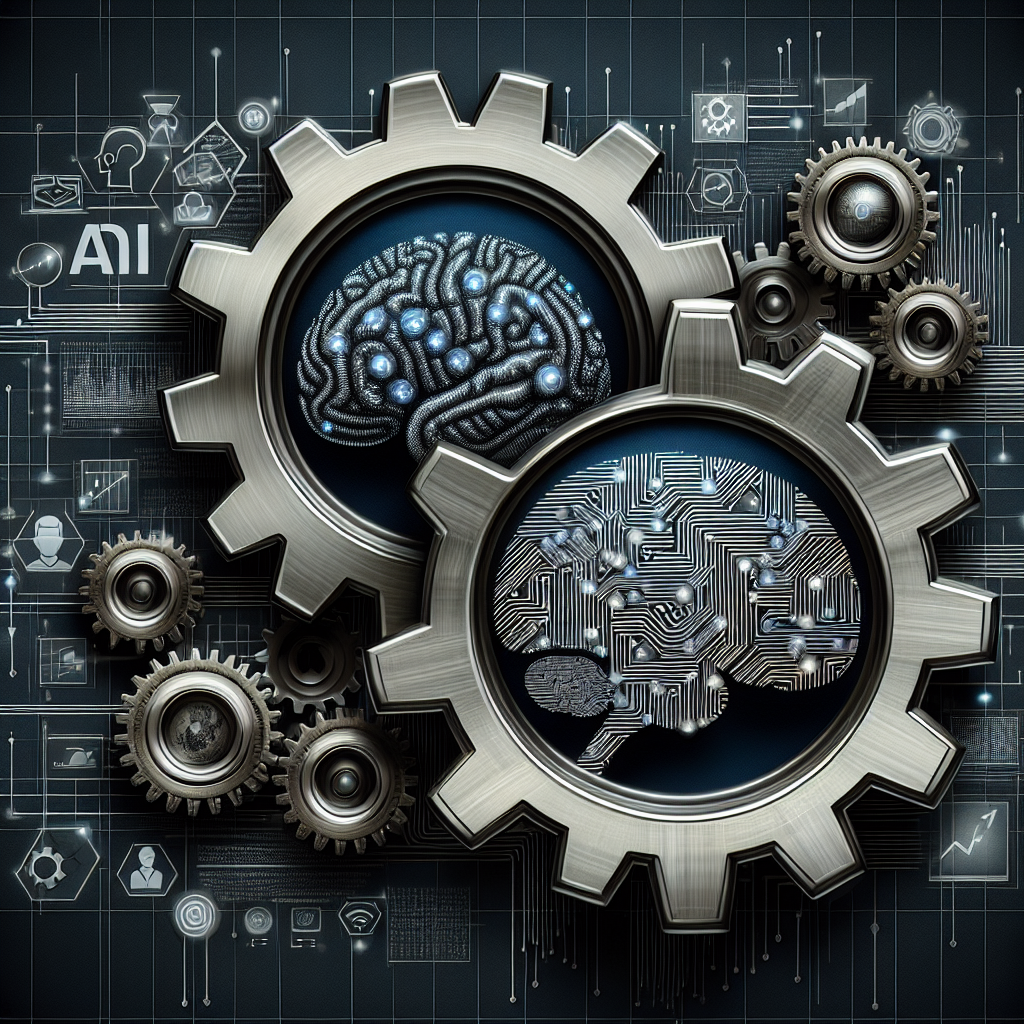In today’s world, technology is advancing at a rapid pace, and businesses are constantly seeking ways to stay ahead of the curve and remain competitive. Two key technologies that are revolutionizing the business landscape are Artificial Intelligence (AI) and Machine Learning (ML). While these terms are often used interchangeably, they are actually distinct concepts that offer unique benefits to businesses. In this article, we will explore the differences between AI and ML, and delve into the various ways in which they can benefit businesses.
AI vs Machine Learning: Understanding the Difference
Artificial Intelligence (AI) is a broad field of computer science that aims to create machines that can simulate human intelligence. AI systems are designed to perform tasks that typically require human intelligence, such as visual perception, speech recognition, decision-making, and language translation. These systems are capable of learning from data, recognizing patterns, and making decisions based on that data.
Machine Learning (ML), on the other hand, is a subset of AI that focuses on developing algorithms that can learn from and make predictions or decisions based on data. ML algorithms are designed to analyze large amounts of data, identify patterns, and make decisions without being explicitly programmed to do so. ML algorithms are used in a wide range of applications, from predictive analytics to recommendation systems to image recognition.
While AI and ML are closely related, they are not the same thing. AI is a broader concept that encompasses a wide range of technologies, while ML is a specific technique used to achieve AI capabilities. In essence, AI is the overarching goal of creating intelligent machines, while ML is one of the tools used to achieve that goal.
Benefits of AI and Machine Learning for Businesses
Both AI and ML have the potential to revolutionize the way businesses operate and make decisions. Here are some of the key benefits that these technologies can offer to businesses:
1. Improved Decision-Making: AI and ML algorithms can analyze large amounts of data and identify patterns that humans may not be able to see. This can help businesses make more informed decisions and reduce the risk of errors.
2. Increased Efficiency: AI and ML can automate repetitive tasks, freeing up employees to focus on more strategic activities. This can lead to increased productivity and cost savings for businesses.
3. Personalized Customer Experiences: AI and ML algorithms can analyze customer data to provide personalized recommendations and offers. This can help businesses improve customer satisfaction and loyalty.
4. Enhanced Security: AI and ML can help businesses detect and prevent security threats, such as fraud and cyber attacks. These technologies can analyze large amounts of data in real-time to identify suspicious activity and take action to mitigate risks.
5. Predictive Analytics: AI and ML can help businesses forecast future trends and outcomes based on historical data. This can help businesses make more accurate predictions and plan for the future more effectively.
FAQs about AI and Machine Learning for Businesses
Q: What are some common use cases for AI and ML in businesses?
A: Some common use cases for AI and ML in businesses include predictive analytics, recommendation systems, natural language processing, image recognition, and fraud detection.
Q: How can businesses get started with AI and ML?
A: Businesses can get started with AI and ML by identifying potential use cases for these technologies, collecting and preparing data, selecting the right algorithms, and implementing the solution. It is also important to continuously monitor and evaluate the performance of AI and ML models to ensure they are delivering the desired outcomes.
Q: What are some challenges businesses may face when implementing AI and ML?
A: Some challenges businesses may face when implementing AI and ML include data privacy and security concerns, lack of expertise and resources, integration with existing systems, and regulatory compliance issues. It is important for businesses to address these challenges proactively to ensure the successful implementation of AI and ML solutions.
Q: What are some best practices for businesses looking to leverage AI and ML?
A: Some best practices for businesses looking to leverage AI and ML include setting clear goals and objectives, investing in data quality and governance, collaborating with experts and partners, and continuously evaluating and optimizing AI and ML models. It is also important for businesses to prioritize transparency and ethics in their use of AI and ML technologies.
In conclusion, AI and ML have the potential to transform the way businesses operate and make decisions. These technologies can help businesses improve decision-making, increase efficiency, personalize customer experiences, enhance security, and drive predictive analytics. By understanding the differences between AI and ML, and leveraging the benefits of these technologies, businesses can stay ahead of the competition and thrive in today’s rapidly evolving business landscape.

